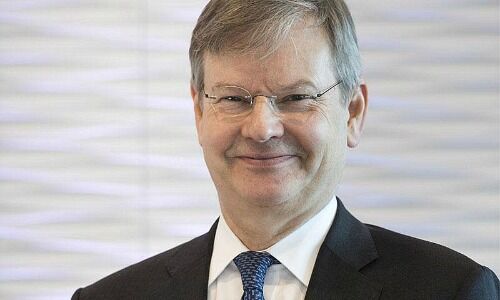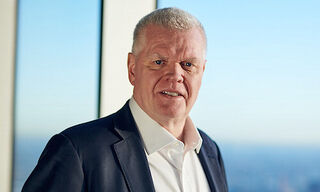The Chinese administration is not only focusing on the country as an economic player but also on it as a global political player, Stefan Gerlach, chief economist at EFG Bank, says in an interview with finews.asia.
Stefan Gerlach, in the U.S., Wall Street seems to be warming to a change in government. Aren’t traders concerned about politics anymore?
A victory of Joe Biden will not surprise Wall Street. People have a good sense of what he might do after an election. Market participants often say political issues tend to impact stock prices in the short run, but don’t fundamentally alter the outlook for equities. The likelihood that Biden wins is quite high and will not come as a shock to the markets.
What are the other major geopolitical risks, apart from corona and the elections in the U.S.?
There are several geopolitical concerns, such as the China-U.S. trade dispute, tensions in Hong Kong, between China and Taiwan, over the South China sea, over North Korea and its missile program.
What would be the rationale behind an aggressive move by China at a time when the economy is already looking fragile?
I think that risk is fairly low. But the Chinese administration is not only focusing on the country as an economic player but also on it as a global political player. And that generates a risk that something could go wrong.
«Things can go wrong if the main powers do not have the economic consequences in mind»
Suppose that President Donald Trump decides shortly before the elections that blocking China’s access to the U.S. financial market is a vote-winner. That would have a huge impact on the global economy and financial system. Things can go wrong if the main powers do not have the economic consequences in mind or do not understand them.
Would Biden be good news for the economy?
Yes. He may not be a charismatic politician, but he is a safe pair of hands. And he will select solid advisers.
Compare this to Trump. He is a reality TV star who rose to power by appealing directly to the public and disregarding the political parties. This has proved to be a problem. Biden by contrast has been through the whole political system.
And more reliable as a partner for the Fed?
More reliable and predictable.
After all, there has been a worry about the threat to the independence of the central bank.
I don’t think the Fed itself has been worried. From people at the Fed, you get the sense that the main effect of the president’s tweets is to make them more careful when drafting speeches. They don’t want to trigger a barrage of tweets with one careless sentence.
«The Fed has had unsuitable board members to deal with before»
And the idea that Trump could impact on monetary policy by nominating supporters to the Fed is wrong. Changing a few governors will not impact much on policy. The Fed has had unsuitable board members to deal with before.
How so?
Extreme views do not have much of an impact, because the decisions depend on where «the point of gravity» of the FOMC is. If you want to have an impact on monetary policy, you need to position yourself close to the middle. Trump’s appointees would be so far away from the middle that their positions wouldn’t matter.
Is that where populism ends?
Competence matters and «boring» but competent politicians such as Angela Merkel are doing well in this terrible pandemic. Populist politicians such as Boris Johnson however have done much less well. It is striking to note that among top-level politicians that have contracted covid we find the presidents of the U.S. and Brazil and the prime minister of Britain.
Stefan Gerlach is the chief economist at EFG Bank in Zurich. He served as deputy governor of the Central Bank of Ireland from 2011 to 2015 and attended the meetings of the European Central Bank's Governing Council. Before that, he was a professor of monetary economics and managing director of the Institute for Monetary and Financial Stability at Goethe University in Frankfurt. He was also and member of the monetary experts' panel of the European Parliament's Committee on Economic and Monetary Affairs. From 2005 to 2007 he was secretary to the Committee on Global Financial System, which was chaired by Vice-Chairman Don Kohn of the Federal Reserve Board, at the BIS in Basel. From 2001 to 2004 he served as executive director and chief economist at the Hong Kong Monetary Authority and director of the Hong Kong Institute for Monetary Research.



























